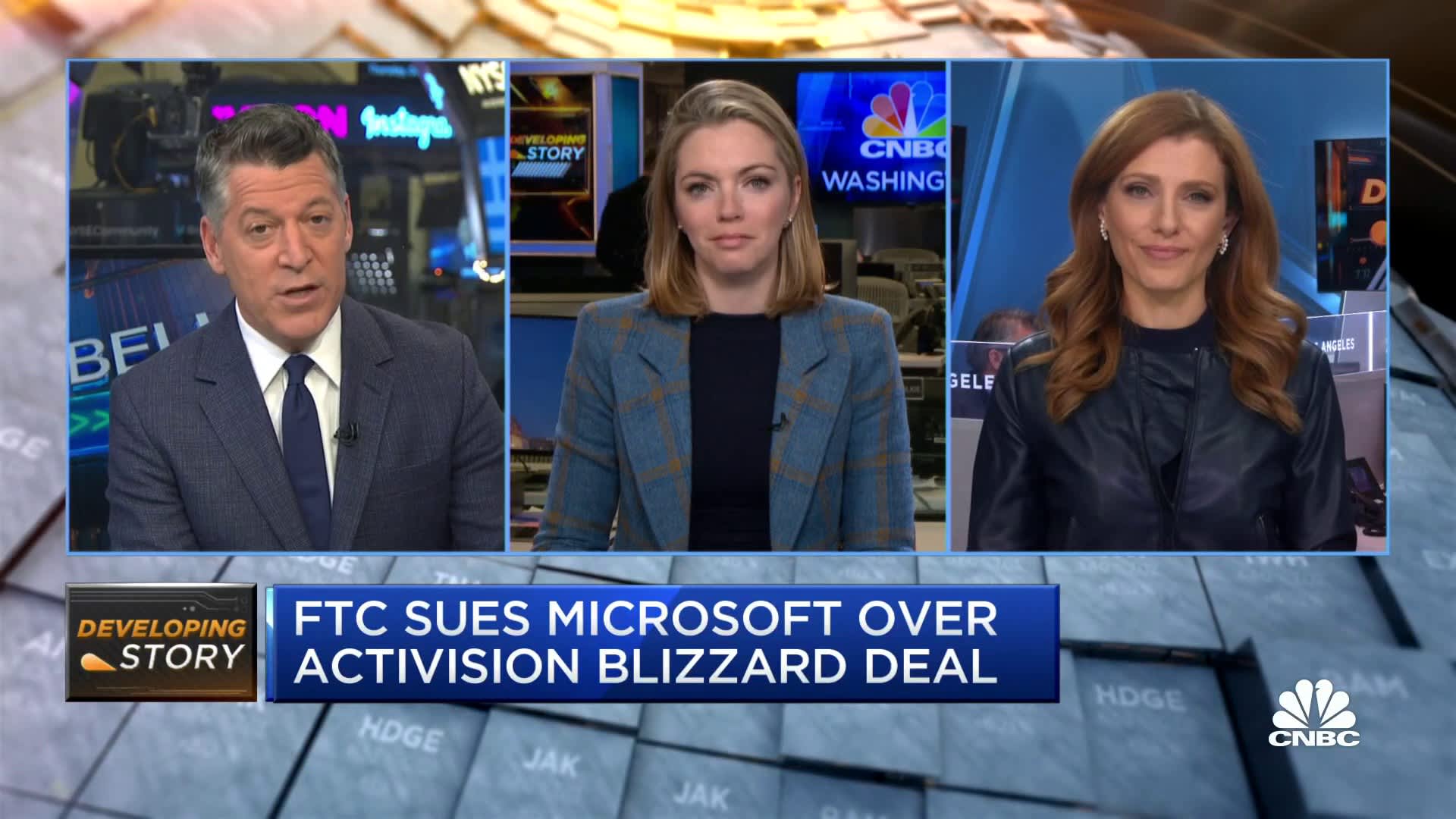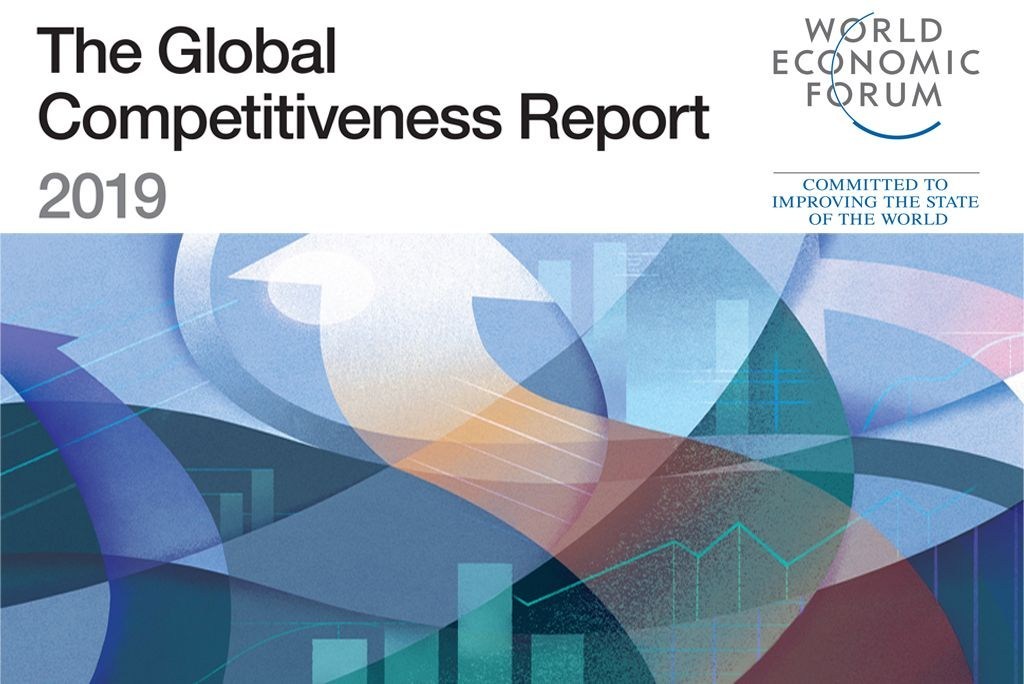FTC To Appeal Microsoft-Activision Merger Ruling

Table of Contents
The FTC's Initial Concerns Regarding the Merger
The Federal Trade Commission (FTC) vehemently opposed the Microsoft-Activision Blizzard merger from the outset, filing an antitrust lawsuit to block the deal. Their primary concern centered on the potential for anti-competitive practices and the creation of a gaming monopoly. The FTC argued that the merger would:
- Stifle Competition: Microsoft's acquisition of Activision Blizzard, home to iconic franchises like Call of Duty, World of Warcraft, and Candy Crush, would give them an unfair advantage over competitors. The FTC feared this would lead to higher prices, reduced innovation, and less choice for gamers. The concern specifically focused on Call of Duty's potential exclusivity on Xbox consoles, harming PlayStation players.
- Establish Market Dominance: The merger, the FTC argued, would significantly increase Microsoft's market share in the gaming industry, giving them undue influence over game development, distribution, and pricing. This would potentially create a monopoly, harming both developers and consumers.
- Negatively Impact Consumers: Ultimately, the FTC's concern was that the merger would lead to a poorer experience for gamers. This could manifest in higher prices for games, reduced access to popular titles on competing platforms, and less innovation in the industry as a whole. The FTC used data on market share and consumer spending to support these claims. The arguments were built around established antitrust law principles concerning monopoly concerns and the preservation of fair competition in the game industry.
The Judge's Ruling and its Implications
Despite the FTC's strong arguments, a US District Judge ruled in favor of Microsoft, dismissing the antitrust lawsuit and allowing the merger to proceed. The judge found the FTC's evidence unconvincing in demonstrating that the merger would substantially lessen competition. Specifically, the judge argued that the FTC failed to provide sufficient evidence to show Microsoft would make Call of Duty exclusive to Xbox, or that the merger would otherwise substantially lessen competition in the video game market. This ruling had immediate consequences, allowing Microsoft to complete the acquisition and significantly reshape the gaming landscape. The ruling triggered immediate responses from both supporters and critics, highlighting the high stakes of antitrust litigation in the tech industry.
The FTC's Grounds for Appeal
Undeterred by the initial setback, the FTC announced its intention to appeal the court ruling. The appeal hinges on the FTC's belief that the judge misinterpreted key aspects of antitrust law and failed to adequately consider the evidence presented. The FTC is likely to argue:
- Misinterpretation of Antitrust Precedents: The FTC will likely contend that the judge's decision misapplied or ignored relevant legal precedents concerning mergers and acquisitions in similarly competitive markets.
- Insufficient Evidence Review: The FTC will likely argue that the judge did not fully consider the extensive evidence presented regarding the potential anti-competitive effects of the merger.
- Underestimation of Microsoft's Market Power: The FTC will challenge the judge's assessment of Microsoft's potential market power post-merger, arguing that the judge underestimated the impact of the acquisition on competition.
The appeal process will involve a thorough review of the evidence and legal arguments. The outcome could significantly impact the future of antitrust enforcement and the gaming industry.
Potential Outcomes and Future Implications of the Appeal
The FTC's appeal could have several outcomes:
- Successful Appeal: The appeals court could overturn the lower court's decision, potentially blocking the merger or imposing conditions to mitigate its anti-competitive effects. This scenario would send a strong message regarding merger control in the tech industry.
- Unsuccessful Appeal: The appeals court could uphold the lower court's decision, allowing the merger to proceed without further legal challenges. This outcome would likely influence future mergers and acquisitions in the tech sector.
- Negotiated Settlement: A settlement between Microsoft and the FTC could be reached, potentially involving concessions from Microsoft to address the FTC’s concerns. This outcome might involve stipulations that Microsoft makes Call of Duty available on PlayStation for a specified duration.
The ramifications of this case extend far beyond the Microsoft-Activision Blizzard deal. The outcome will set a precedent for future mergers and acquisitions in the rapidly consolidating tech industry, impacting both regulatory oversight and the competitive landscape of the gaming market. The potential impact on the future of gaming, tech industry regulation, and merger control is immense.
Conclusion: The FTC's Appeal and the Future of the Microsoft-Activision Merger
The FTC to Appeal Microsoft-Activision Merger Ruling is a pivotal moment for the gaming industry and antitrust law. The FTC's appeal represents a significant challenge to the initial court decision and raises crucial questions about the balance between innovation and competition in the technology sector. The outcome will have far-reaching implications for the future of mergers and acquisitions in the tech industry and the overall competitive landscape of the gaming world. To stay updated on this landmark case and other important developments, subscribe to our newsletter for regular updates on the FTC's appeal of the Microsoft-Activision merger ruling and other significant legal battles shaping the tech industry.

Featured Posts
-
 Exclusive Report World Economic Forum Faces Scrutiny Following Probe Into Klaus Schwab
Apr 24, 2025
Exclusive Report World Economic Forum Faces Scrutiny Following Probe Into Klaus Schwab
Apr 24, 2025 -
 Teslas Optimus Navigating The Complexities Of Rare Earth Dependence
Apr 24, 2025
Teslas Optimus Navigating The Complexities Of Rare Earth Dependence
Apr 24, 2025 -
 Uil State Bound Hisd Mariachis Viral Whataburger Performance
Apr 24, 2025
Uil State Bound Hisd Mariachis Viral Whataburger Performance
Apr 24, 2025 -
 Why This Startup Airline Uses Deportation Flights
Apr 24, 2025
Why This Startup Airline Uses Deportation Flights
Apr 24, 2025 -
 John Travolta Honors Late Son Jett On His Birthday With A Touching Photo
Apr 24, 2025
John Travolta Honors Late Son Jett On His Birthday With A Touching Photo
Apr 24, 2025
